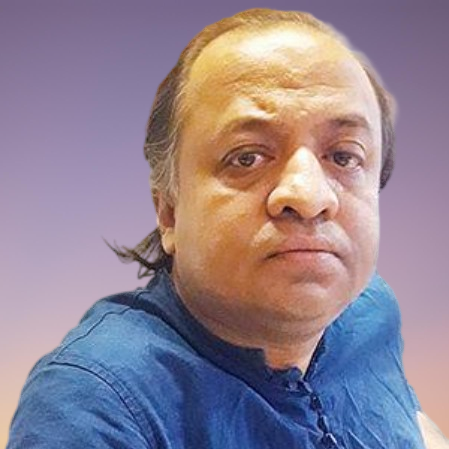Culture

This year, prominent poet Sikdar Aminul Haq has been posthumously honoured with the prestigious Ekushey Padak 2020. His son Salman Tarik Misha, on behalf of Sikdar Aminul Haq, received the posthumous award from Prime Minister Sheikh Hasina at a ceremony at the Osmani Memorial Auditorium in the city on February 20.
Sikdar Aminul Haq is generally a modernist Bangladeshi poet. He is also a prolific poet and his poems are of outstanding intellectual quality. Incidents of everyday life can be found in much of his poetry but in a very symbolic and complicated way. He frequently experiments with form and content. He often approaches surrealism and expressionism in his works. He uses the imagery of varied urban motifs and infrequently rural motifs like moon, sun, sky, lush greenery, clouds and other natural wonders in his poetry. His poetry shows a considerable degree of social awareness and a sense of satire. His works also focus on Dhaka's contemporary life and times.
Sikdar Aminul Haq was born on December 6, 1942. He is a recipient of the Bangla Academy Award in 1994 for poetry and many other prestigious awards. His breakthrough came with his commendable work Satata Danar Manush. The poet is popular for the handling of unusual, whimsical and innovative imagery in his creations.
Aminul Haq's poetry has superbly documented pains, agonies, weal and woe of human beings, historical and political episodes in our country. His poems are distinguished for their highly expressive and communicative, poignant and symbolic traits. For inspiration, Aminul Haq veers towards human life and their varied social and cultural aspects, patriotism, political ups and downs. Aminul Haq's poems are courageous, thought-provoking and intellectually rich. His protest against religious intolerance has been reflected in his poetry.
Several of Aminul's poems are conceptual and some deal with death, romance and at times the absurd. As an experimental poet, he frequently changed his technique, mode and overall substance.
Aminul Haq's notable works are 'Duurer Karnish' (1975), 'Teen Papreer Phul' (1979), 'Parabat Ei Pracheerer Shes Kabita' (1982), 'Ami Sei Electra' (1985), 'Bohudin Upekhae Bohudin Aundhokarey' (1982), 'Patrey Tumi Protidin Jol' (1987), 'Ek Ratri Ek Writu' (1991), 'Satata Danar Manush' (1991), 'Suprobhat Hei Varanda' (1993), 'Kafkar Jama' (1994), 'Sulata Amar Elsa' (1994), 'Rumaler Alo O Onnanno Kabita' (1995), 'Lorkakey Jedin Ora Niye Gelo' (1997), 'Bimorsho Tatar' (2002), 'Ishitar Ondhokar Shue Ache' (2002).
The poet died in 2003.

























Leave a Comment
Recent Posts
Pedaling Through the Mangroves ...
The journey from the bustling streets of Barishal to the serene, emera ...
Why the Interim Government mus ...
Two weeks out from what is expected to be a red letter day in the figh ...
Doesn’t matter who thinks what about Bangladesh deci ..
The Other Lenin
US President Donald Trump said his administration
Govt moves to merge BIDA, BEZA, BEPZA, MIDA